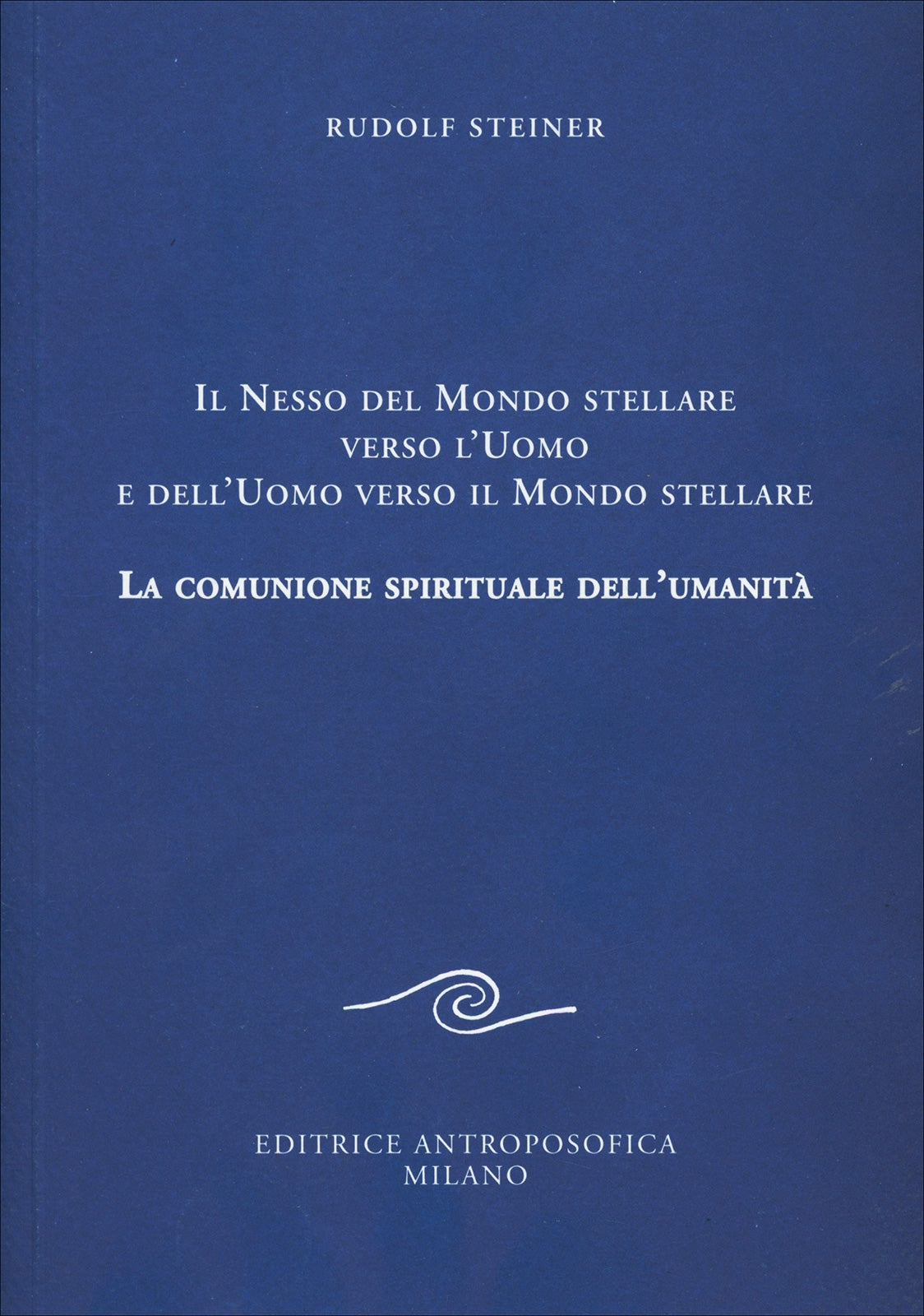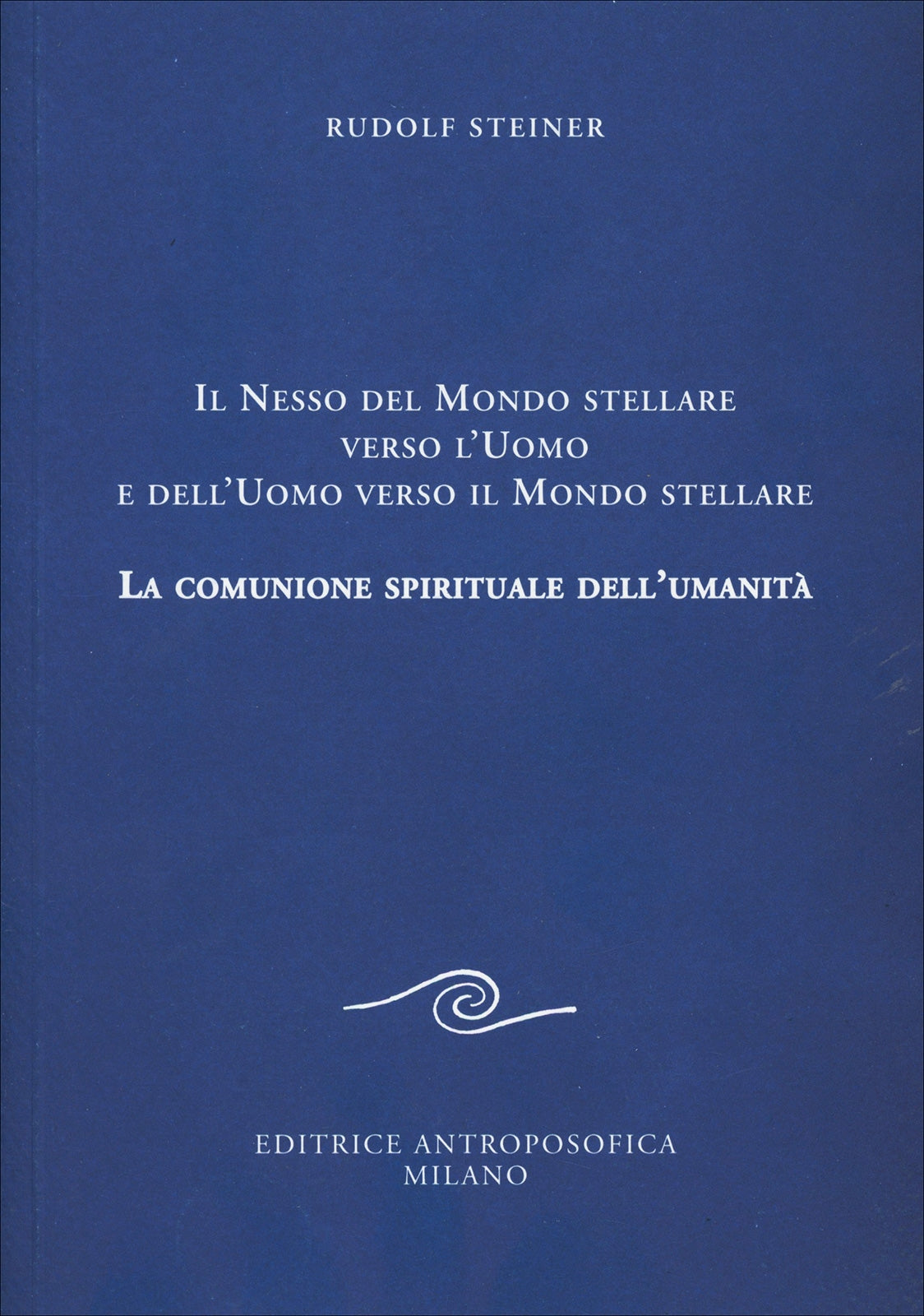219 - The Nexus of the Stellar World Towards Man and of Man Towards the Stellar World - Rudolf Steiner
Have a question?

219 - The Nexus of the Stellar World Towards Man and of Man Towards the Stellar World - Rudolf Steiner
Dettagli
Rudolf Steiner was an Austrian philosopher, architect and reformist, founder of anthroposophy , an esoteric current that mixes various dictates of the theosophical and German philosophical-idealist school of the time. From the early years of his cultural education, Steiner aspired to find the perfect synthesis between mysticism and science . According to him, reality is a constantly evolving spiritual manifestation that can be studied through " soul observation ", a kind of clairvoyance which according to him had real scientific bases.
This continuous research led him, after obtaining his doctorate, to move from Vienna to Weimar to work at the Goethe und Schiller Archiv, the Goethe archive. This work allowed him to publish the essay "Introduction to Goethe's Scientific Writings" and to develop his personal vision of the world.
In 1894, he published his most important essay, “ The Philosophy of Freedom ,” which proposed a revolutionary concept for its time: the discovery that thought can lead to the realization of the spirit of the world. He believed that he should not deny scientific realities, but simply offer a more complete vision that also took spirituality into account.
The tome did not achieve much success but Steiner had created a solid foundation for the knowledge of the spirit, and he felt able to carry out his research in this field without any hesitation. Furthermore, the work on "The Philosophy of Freedom" allowed him to solve a series of enigmas about existence that had persecuted him for some time.
Steiner's interests were many, ranging from philosophy, sociology, musicology, anthropology but certainly the disciplines on which he most focused his work and dedication are:
- Anthroposophic medicine : an alternative medicine or pseudo-medicine that uses natural principles obtained from minerals, plants or animal organs as medicinal substances. It shares some similarities with homeopathy but differs from the latter especially in the formulation of medicines, usually liquid for what concerns homeopathy, solid for anthroposophic medicine.
- Waldorf or Steiner pedagogy : an educational approach based on anthroposophy, therefore a mystical-spiritual training path with esoteric implications; it is quite controversial and does not even involve the use of textbooks or school curricula. There are schools with Steiner pedagogy all over the world, including Italy, and they adopt an educational path divided into various levels which embrace the entire education of an individual from pre-school age (therefore before the start of nursery school) to the completion of the eighteenth year of age.
- Biodynamic agriculture : a type of agriculture that seeks to study the connections and influences of celestial bodies on crops in order to obtain a perfectly balanced ecosystem.
Another area to which Steiner dedicated much of his energy is that of life after death, in fact he firmly believed in reincarnation according to the law of karma , therefore he maintained that previous lives influence every new life.
All Rudolf Steiner books are available in this category of the site.


